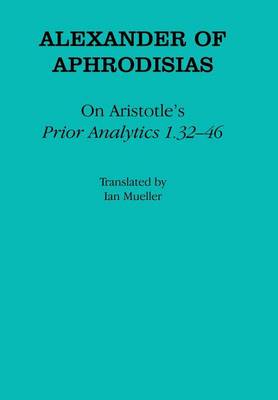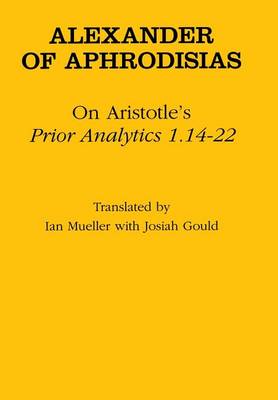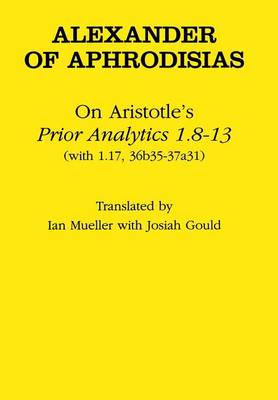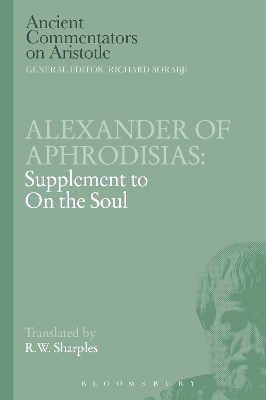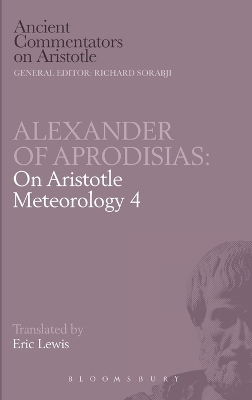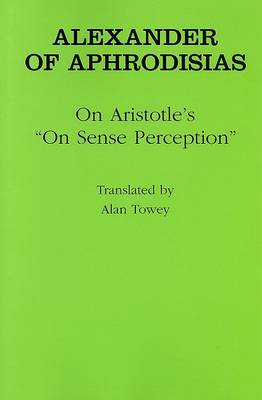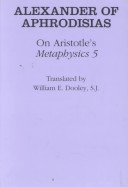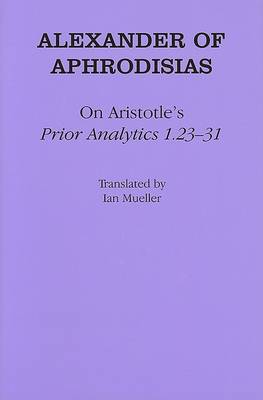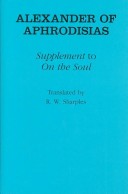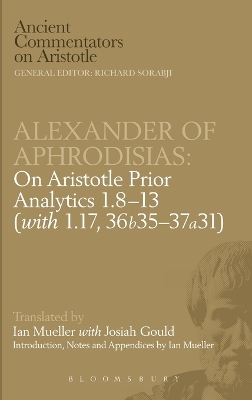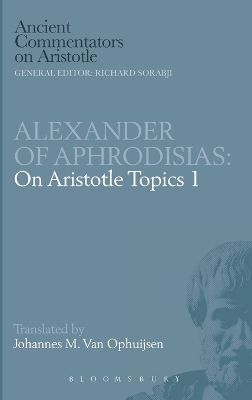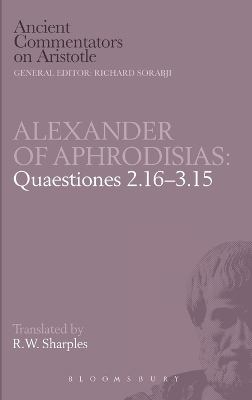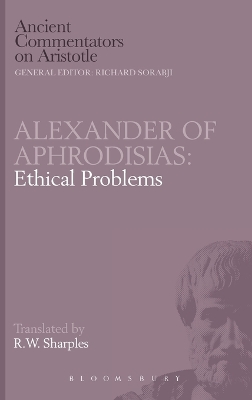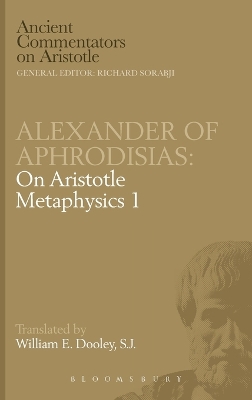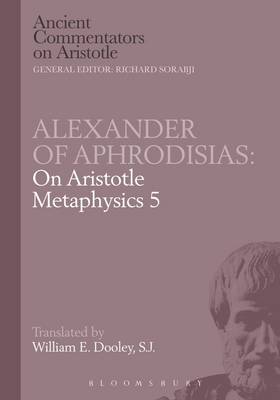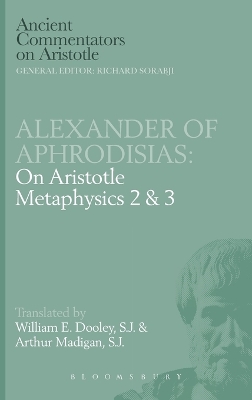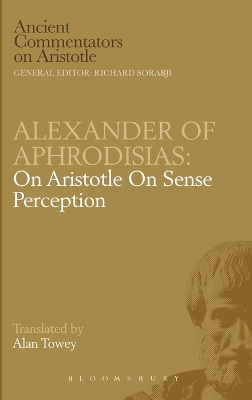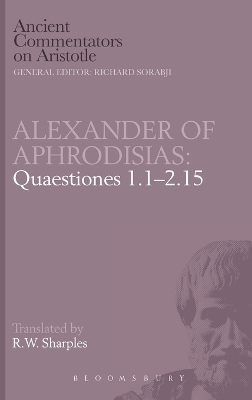Ancient Commentators on Aristotle
21 total works
Alexander of Aphrodisias: Supplement to On the Soul
by of Aphrodisias Alexander
Inspired by discussions of Aristotle's works among Alexander and associates of his, the Quaestiones illuminate the functioning of a philosophical school in the early third century A.D. In their emphasis on resolving apparent anomalies and contradictions, they exemplify the process by which Aristotle's thought came to be regarded as "Aristotelianism," and they reveal the influence of the doctrines of Hellenistic philosophy. The translation of some of these first into Arabic and then into Latin played and important role in the transmission of ancient Greek philosophy to the medieval world. Of more than historical interest, Alexander's Quaestiones cast light on Aristotle's views on such issues as the problem of universals and the relation between form and matter.
The Quaestiones have received increasing attention in recent years; this volume, along with its projected sequel, will make all of the text available for the first time in modern language. Students and scholars in the fields of ancient philosophy, classics, and medieval studies will warmly welcome it.
Aristotle also invented the syllogism, a style of argument involving two premises and a conclusion. Modal propositions can be deployed in syllogism, and in the chapters included in this volume Aristotle discusses syllogisms consisting of two necessary propositions as well as the more controversial ones containing one necessary and one non-modal premiss. The discussion of syllogisms containing contingent propositions is reserved for Volume 2.
In each volume, Ian Mueller provides a comprehensive explanation of Alexander's commentary on modal logic as a whole.
Quaestiones 2.16-3.15
by of Aphrodisias Alexander and Aphrodisias, Alexander of
Those interested in Aristotle's psychological views will find this half of Quaestiones particularly valuable. Ten of the problems discussed explicitly involve issues raised in On the Soul, including the unity of apperception and the transition from first to second actuality in the act of contemplation. A further dozen concern problems in physical theory, including infinity, necessity and potentiality. Quaestio 2.21 concerns divine providence and helps supplement our knowledge of Alexander's position based on surviving Arabic fragments of his On Providence.
On Aristotle "Metaphysics 5"
by of Aphrodisias Alexander and Aphrodisias, Alexander of
